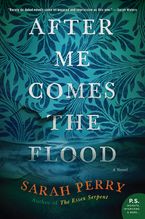


She’s the daughter of a hippie activist shaman named Norm and his much younger wife, Amalia, whom Norm adopted when he found her wandering through a garbage pit as a 12-year-old runaway in Colombia and married once she turned 18. Nicotine concerns a young woman named Penny. She grasps how millennial activists - and baby boomer activists, and millennial entrepreneurs - think and act and speak, and when she mocks them, it’s not with condescension but with affection. What makes her satire so exciting and so novel is the empathy of her writing: She really loves her characters, even when she laughs at them. Nicotine’s greatest strength is the warmth with which it treats its charactersĮven when Zink is being conventional, she’s exemplary. It still boasts Zink’s signature weirdness, but if you find her reputation intimidating, it’s a good entry point.

It’s a straightforward satire of contemporary bourgeois radicalism, with a simple, linear timeline. If her other novels were loopy and aggressively esoteric - Private Novelist, for instance, contains Zink’s verbatim translation notes on a Hebrew novel - Nicotine has, for the most part, a pretty conventional structure. Zink’s work is distinctly unpasteurized, and yet-here she is.Įnter Nicotine, Zink’s latest and most accessible book. American publishing today milks a reliably profitable herd of authors for bland, high-fat novels. She’s also wildly erudite, but straightforward, even plainspoken, in her vocabulary. Zink satirizes average-to-privileged people in the manner of Jane Austen, but her books are too short to run to social commentary. Honestly, how dare she?Īnd all of them are really good, good enough to be longlisted for the National Book Award but so artfully weird and unconventional that none of them have made the respective shortlists - not because they’re not good enough, but in a way that suggests they’re all too ahead of their time for the National Book Award to fully appreciate.Īs Josephine Livingstone writes for the New Republic, "Zink’s novels, while undeniably excellent, are so strange that it is hard to understand why anybody actually likes them." Livingstone goes on: Since then, she’s published three more novels in the space of two years. ( Zink and Franzen like to correspond about birds together.) The result was 2014’s The Wallcreeper, which won raves from the New York Times. Zink didn’t publish a word until she was 50, when she sent her pen pal Jonathan Franzen a manuscript and he encouraged her to try to publish it. Have you ever heard of anything so infuriating? It takes Nell Zink only three weeks to write a novel.


 0 kommentar(er)
0 kommentar(er)
